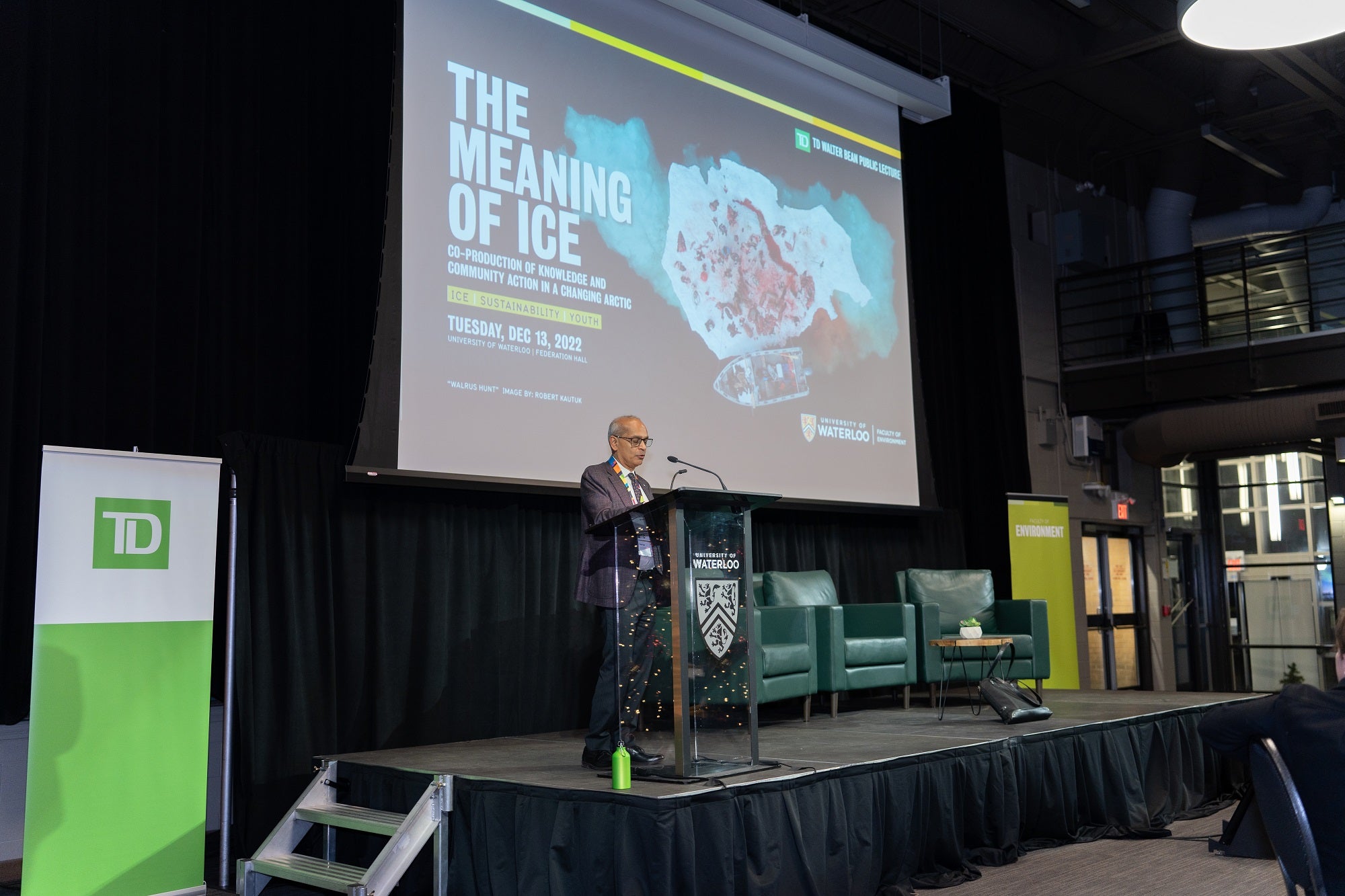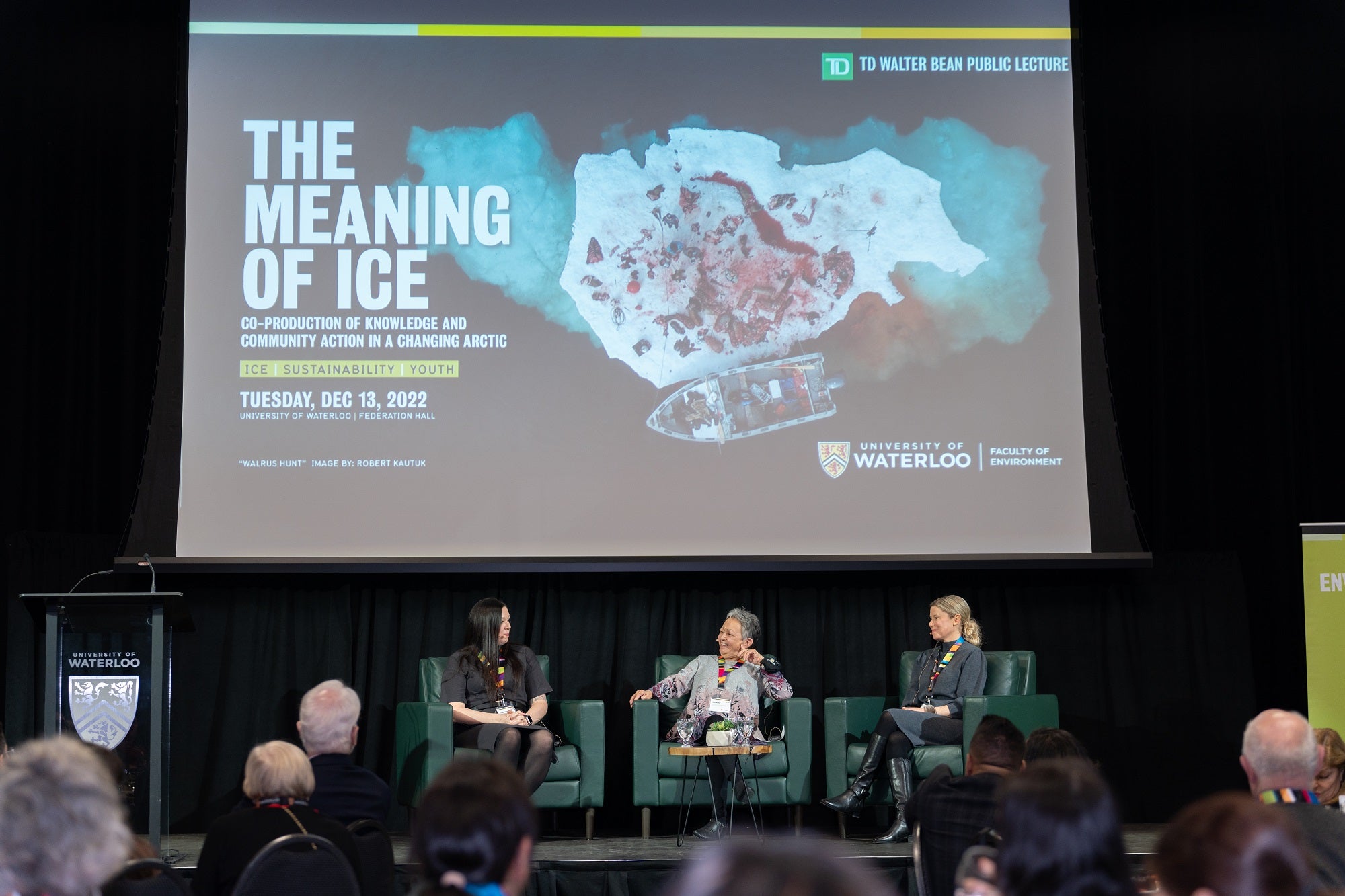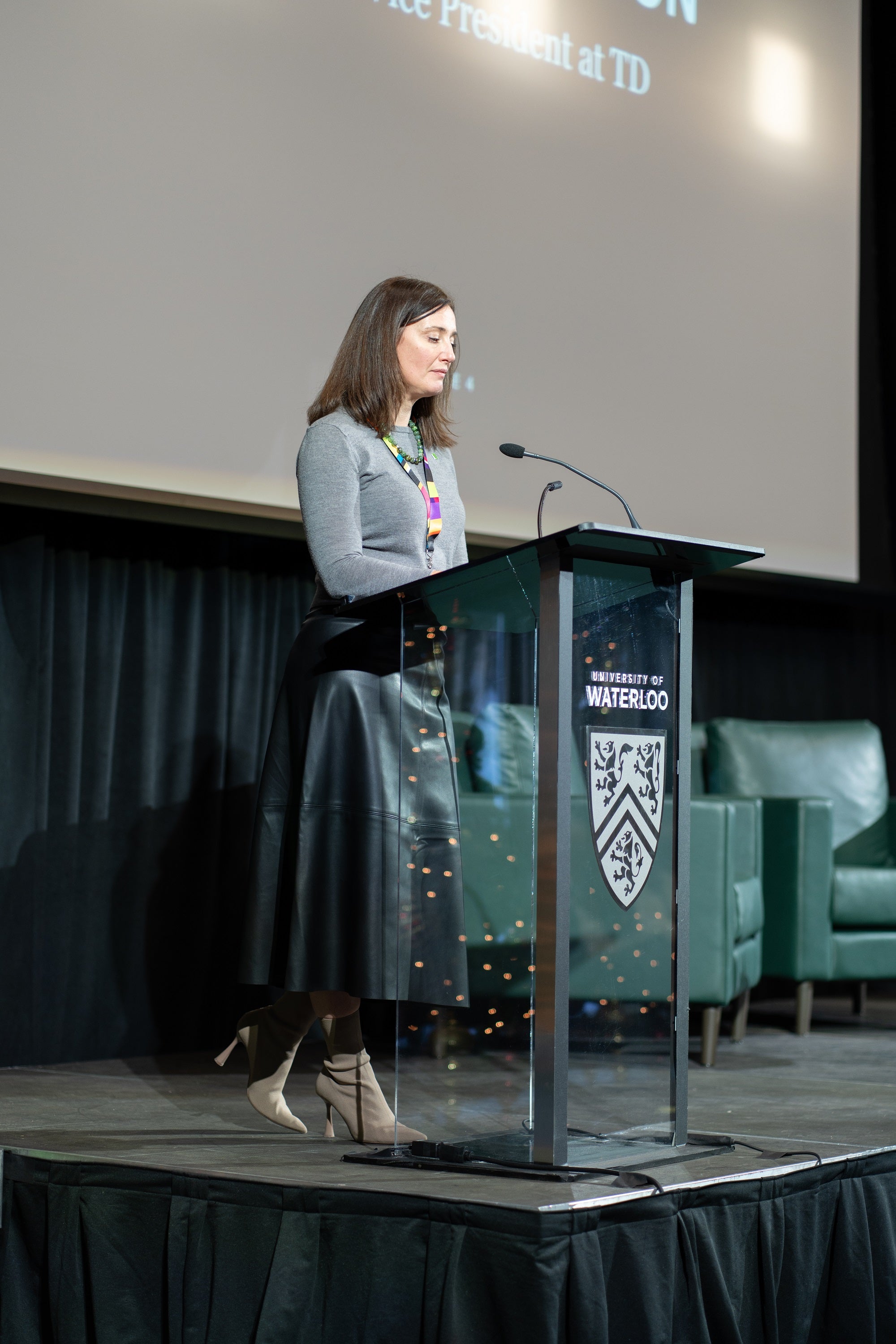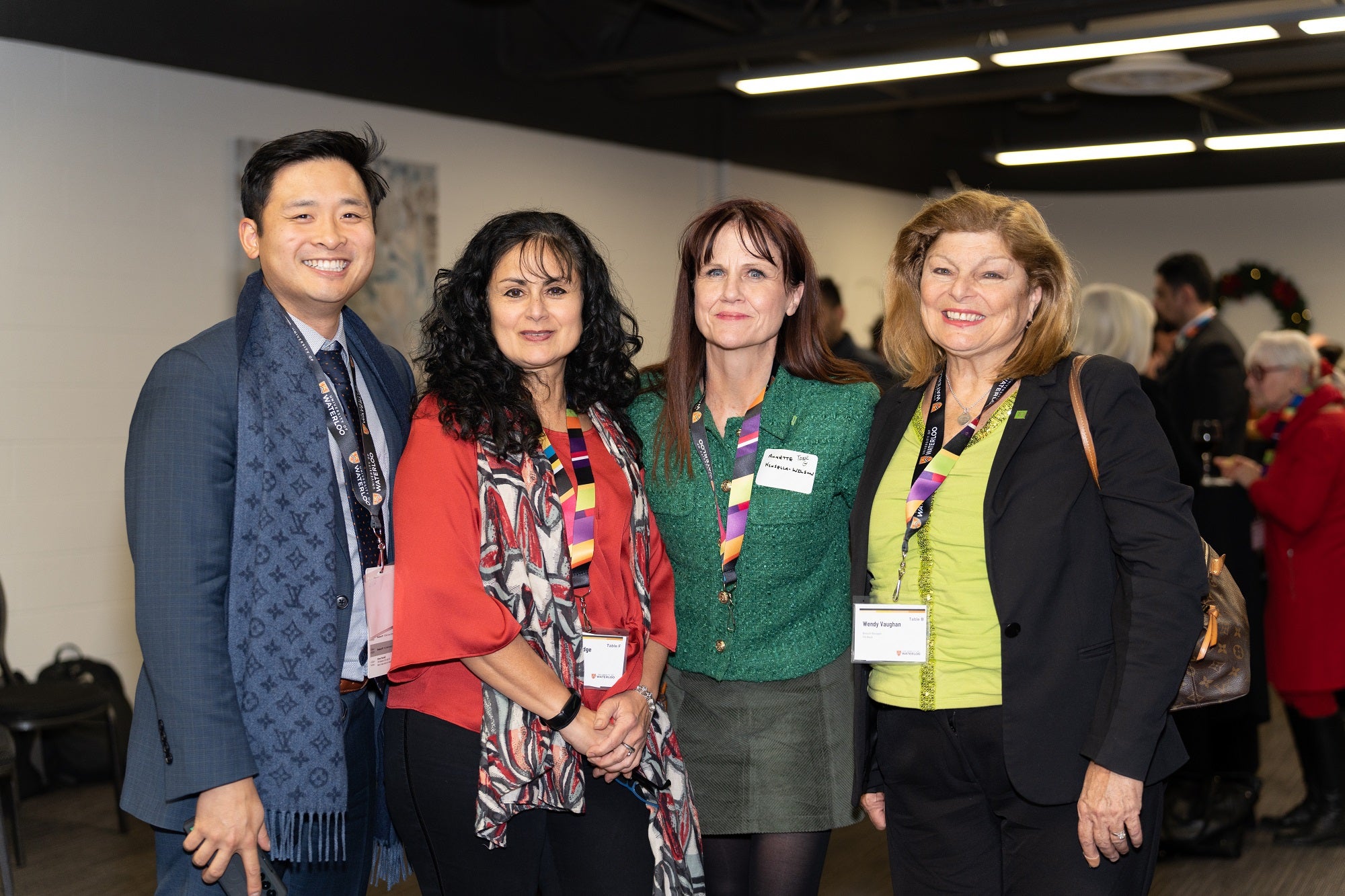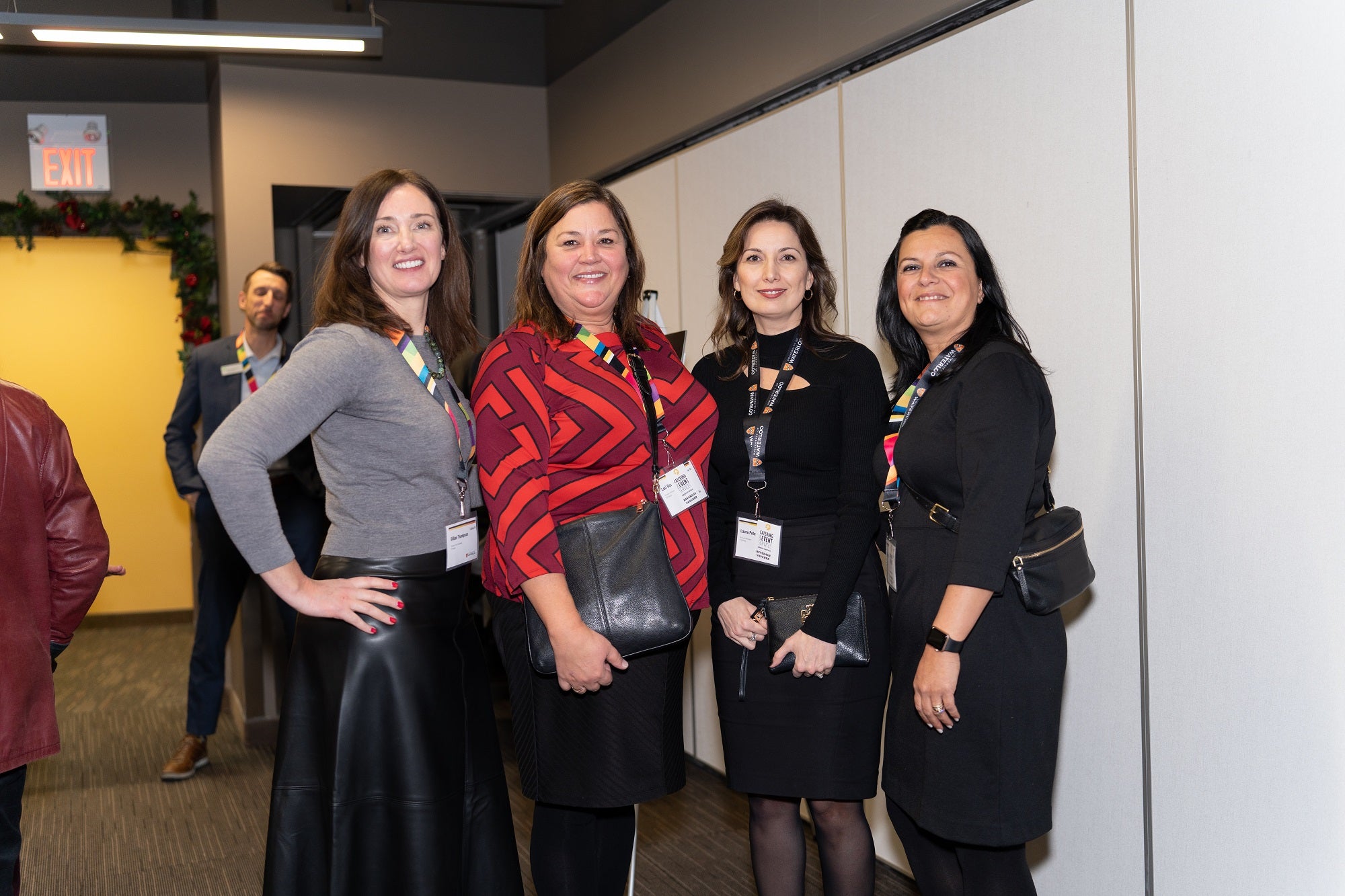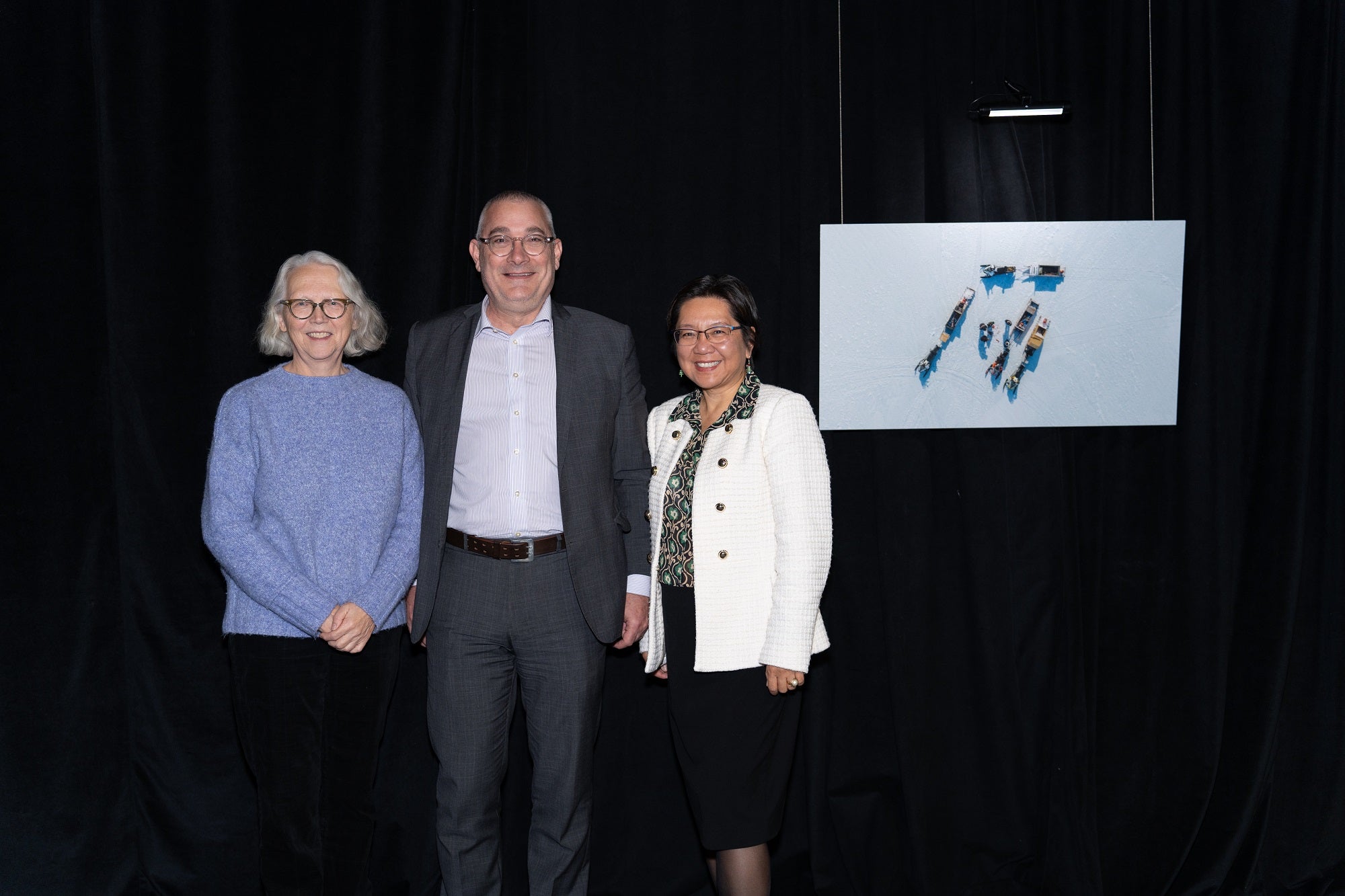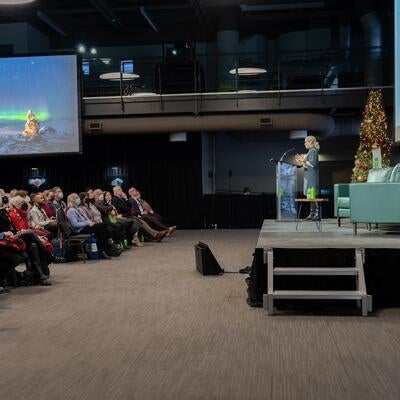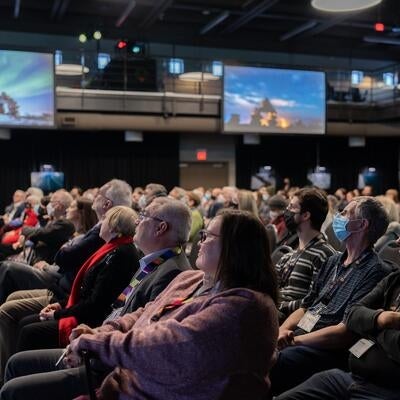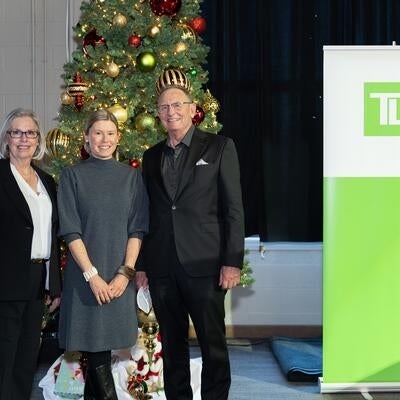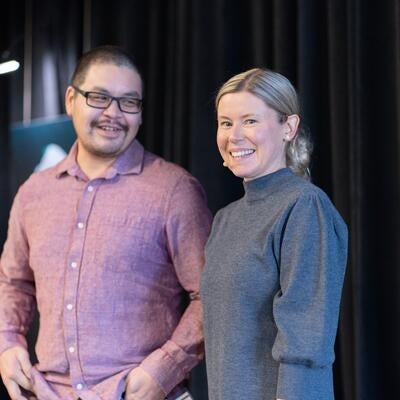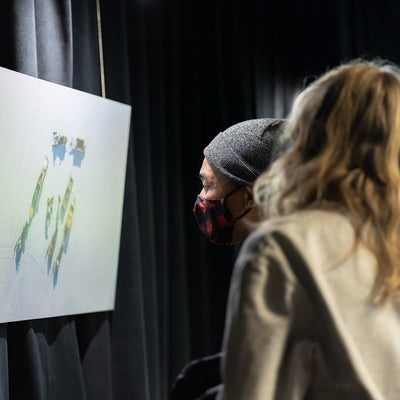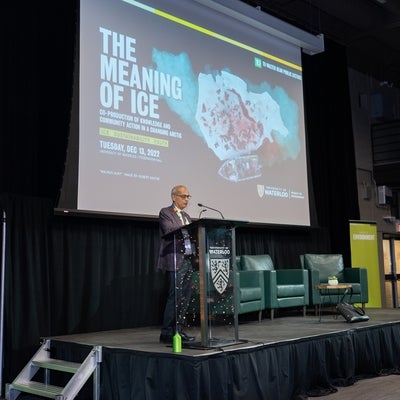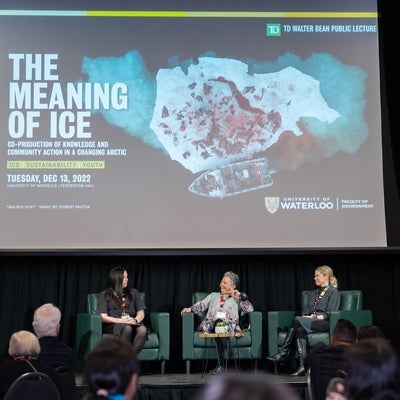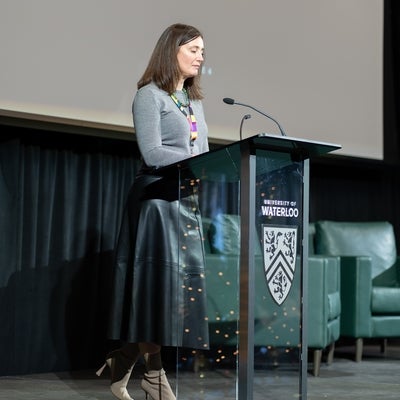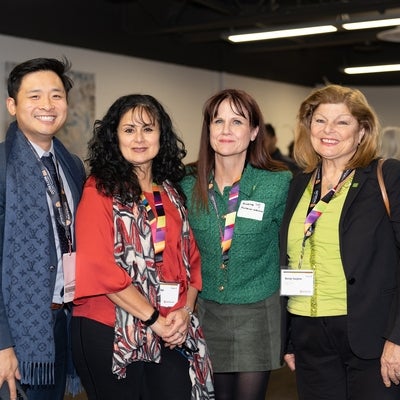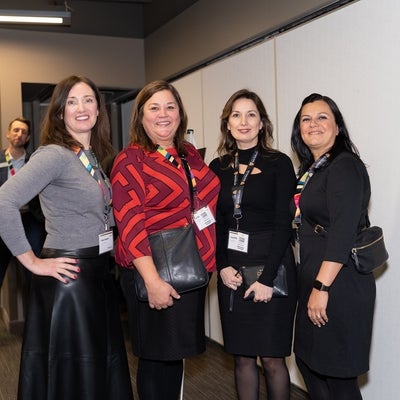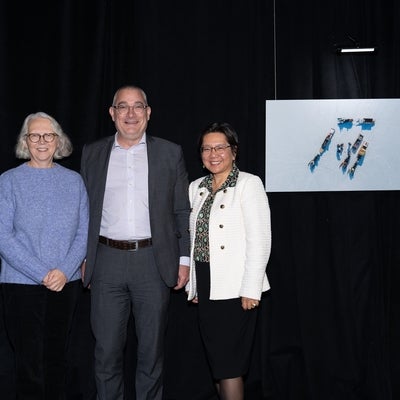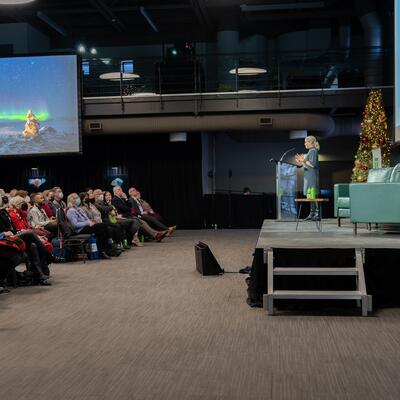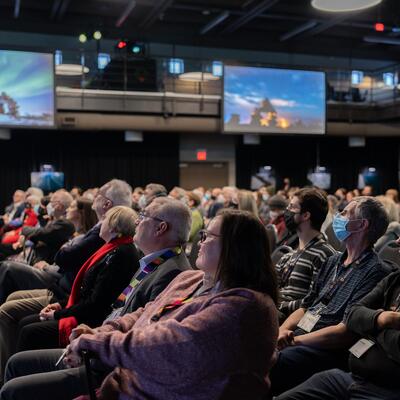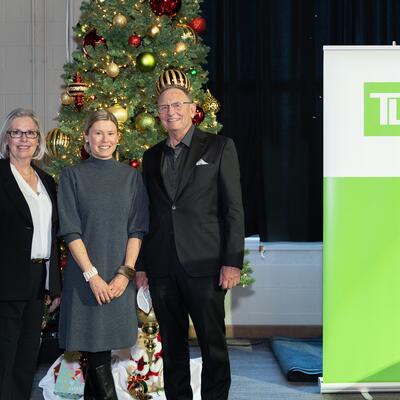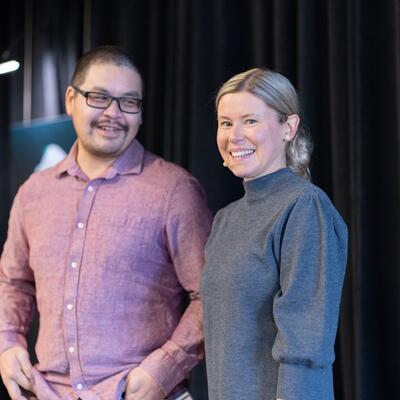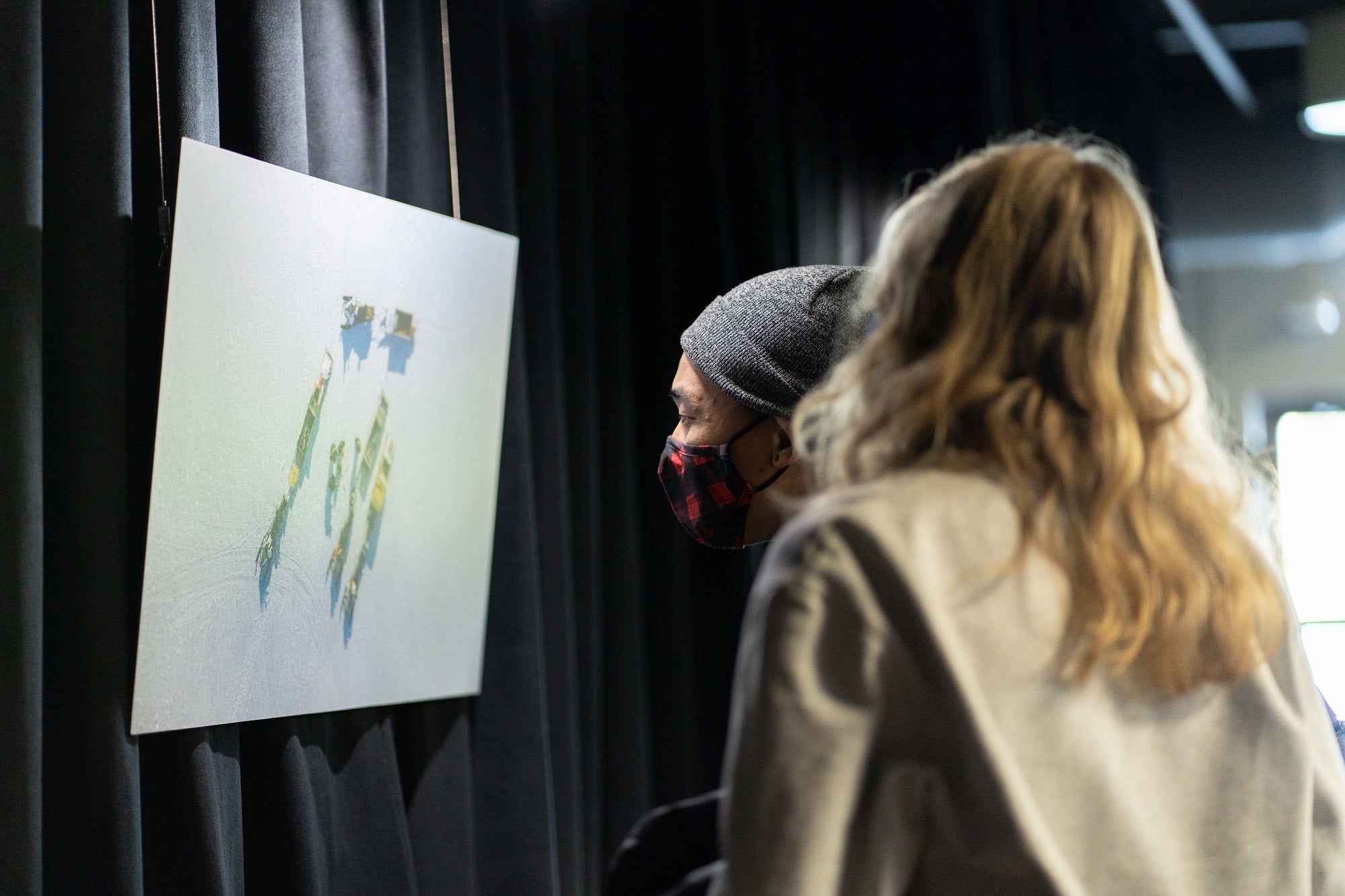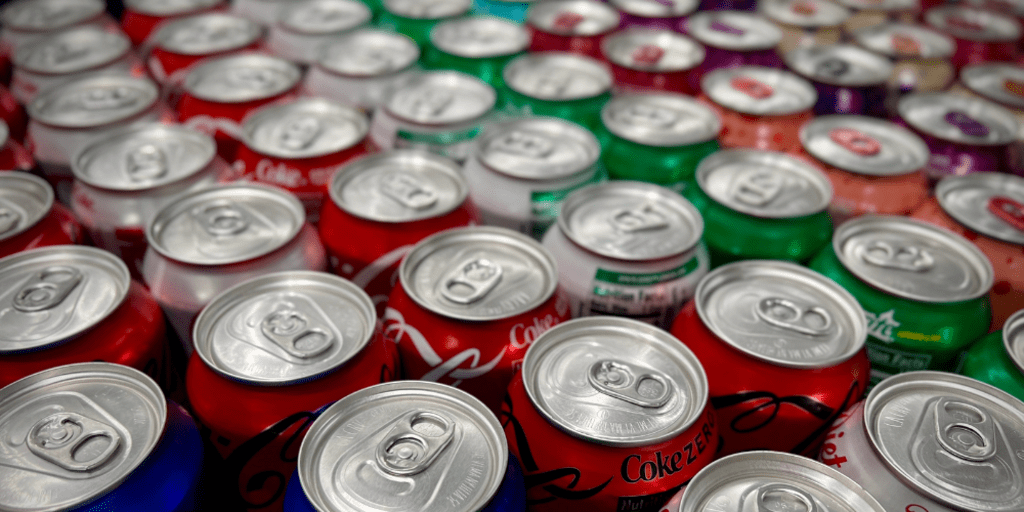Estimated reading time: 5 minutes
They are among the most difficult questions confronting humanity — and the most urgently in need of a response. How can we prevent climate change from becoming a full-blown global climate catastrophe that imperils our very existence? How can we stop driving thousands of animal and plant species into extinction? How can eight billion people take what they need from this planet without taking so much that they destroy it?
Dr. Shari Fox has an answer that could help make a positive difference in all these areas. Turn to Indigenous Peoples and learn from them, says the scientist and academic who was chosen for this year’s TD Walter Bean Professorship in Environment at the University of Waterloo.
“The climate is changing,” she says. “For the Arctic, this means current and future dramatic changes. To address these impacts, we first need to understand them, which takes all of the best available knowledge, including, and especially, Indigenous knowledge.”
This is the message Fox brought to Waterloo in her December 13, 2022 lecture at Fed Hall. It was a call to action she continues to share at the university in 2023. A Senior Research Scientist with the National Snow and Ice Data Center at the University of Colorado Boulder, as well as a Waterloo alumna, Fox began working with Inuit hunters and Elders in the late 1990s.
Her home and research base for many years has been Kangiqtugaapik, or Clyde River, Nunavut, a remote, fly-in community of about 1,100 people on the northeast coast of Baffin Island. It was an ideal and breathtakingly beautiful location in which Fox could study sea ice, understand how it is being impacted by climate change, and how those changes link to the region and rest of the world.
From the Western scientific methods she was steeped in, Fox learned that the Arctic is warming at “an alarming rate” that is “more than twice, and up to four times faster than the rest of the globe.” She knew that “overall we’re losing ice.” Since 1979 and the first satellite records, the extent of sea ice cover in the Arctic has dropped by 12.6 per cent each decade. Making the situation more fraught, the amount of thicker multi-year ice has also dramatically reduced, with impacts for things like wildlife habitat.
Over time, Fox became acutely aware of the problems with Western science and research and its colonial history. Like many Indigenous peoples all over the world, Inuit have long been suspicious, even disdainful, of the kind of research that for decades has been conducted by outsiders from the south. Not only are such researchers often seen as colonial intruders whose visits in the region are too brief for them to truly understand it, their reports have often perpetuated stereotypes of Inuit, disrespected their values and been the basis of harmful government programs.
In turn, as Fox became aware of the limitations of Western science, she realized what could be gained by tapping into the knowledge and science of Inuit. It is, in part, an understanding of the Arctic accumulated through thousands of years of living in an intimate, respectful and sustainable relationship with the natural world around them. She grew to appreciate Inuit expertise, and “the different ways of knowing and seeing the world” that informed the lives of the Inuit Elders and hunters she worked with. Constantly in touch with the land and sea around them, they regularly observed how rising annual temperatures and the loss of sea ice cover affected the animals and fish they depended on. Not only was such knowledge essential for understanding what’s happening to the Arctic, it’s vital in lessening and correcting the damage associated with climate change. “Inuit are the original researchers of this environment,” Fox says, adding “Inuit knowledge predates satellites.”
The more she became aware of this, the more Fox became an advocate of co-production of knowledge a process that brings together Indigenous Peoples’ knowledge with Western science. That approach informed a book she helped produce, The Meaning of Ice which is filled with artwork, illustrations, and gorgeous Arctic landscape and family photos contributed by dozens of Inuit contributors. The book also includes dozens of maps made by Inuit hunters and Elders that document sea ice changes and the impacts they’re having on Arctic communities.
To further co-production of knowledge, Fox has collaborated on a number of Inuit-led research projects and initiatives. They include the Ittaq Heritage Research Centre in Clyde River; the Angunasuktiit program, which is led by four, full-time hunter-instructors; and the Kangiqtugaapik Weather Station Network. Attitudes and practices are, indeed, changing.
Fox shared her TD Walter Bean Public Lecture event with friend and colleague Robert Kautuk, a professional photographer and drone pilot originally from Clyde River. Robert exhibited a display of 19 of his stunning photographs of the Arctic landscape and life. There were also three large projector screens, showing Robert’s photos of northern lights, one was a time lapse video of the lights. Robert’s art was a unique component of the lecture this year and added not only to the lecture, but to the feel in the hall as the audience could get a sense of being in the North. Fox made a point in her lecture to acknowledge Robert’s work and the importance of bringing art and science together, and advocating for much more of this, not least in methods for studying and communicating climate change and its impacts.
In 2022, the Inuit Circumpolar Council released its Ethical and Equitable Engagement Synthesis Report, which is “a collection of Inuit rules, guidelines, values and protocols for engaging Inuit communities and Inuit knowledge.” It’s also the year in which University of Waterloo President Vivek Goel affirmed the university’s commitment to decolonization, Indigenization and reconciliation. Given that declaration, the timing of Fox’s professorship is especially appropriate. Through the kinds of collaborations she’s promoting, her most fervent hope is that new policies and actions will emerge to protect the planet that is shared by every living thing.
“This is an Arctic story,” Fox says. “But the lessons can apply well beyond.”
Photo gallery from the TD Walter Bean Lecture, The Meaning of Ice, and related events
